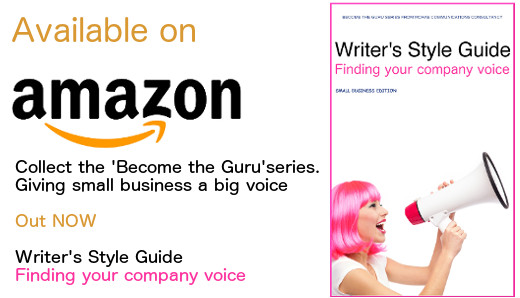 Well, except those with masochistic tendencies perhaps. However, creating a proposal needn’t result in ulcers, lost hair and bitten nails. If you have a system or process in place before you get the ball rolling you will save you and those around you a lot of angst – not to mention putting you and your business in a stronger position to win new business.
Well, except those with masochistic tendencies perhaps. However, creating a proposal needn’t result in ulcers, lost hair and bitten nails. If you have a system or process in place before you get the ball rolling you will save you and those around you a lot of angst – not to mention putting you and your business in a stronger position to win new business.
The tender process itself is standard practice in Government departments and private organisations. It provides a structure or framework to assess the suitability of potential business partners or contractors and sets the tone in terms of fairness, transparency, competition, value for money and accountability.
With this in mind, it’s no wonder that the business of tendering is actually increasing rather than declining (depending on your business sector), so it makes sense to get to get to grips with the process if you wish to include tendering in your growth strategy in the years ahead.
The 3 ‘Ps’ to a pain-free proposal process
Without a doubt, the best approach to writing a winning proposal is to get expert help. It takes time and effort and it should be viewed as a business priority within your organisation so it’s certainly worth dedicating some budget to getting it right. If you don’t have the budget for a dedicated resource and you find yourself in the position of having to develop your proposal in-house, the following 3-P pointers will be good to keep in mind before you even begin to formulate your response.
- Prioritise: If you are juggling other work projects, make sure you have factored this into your timeline. The tender must be a priority if it is to win you big business, so if you have other deadline-driven projects, hand them over or be realistic about what you can honestly take on. Tendering can be stressful as it is. Don’t add to this unnecessarily without project managing your other projects.
- Plan: This covers a multitude of sins. Plan your workload, plan your team, plan what input your team will provide, plan your milestones and plan your strategy and approach to the response.
- Process: I can’t stress enough the part ‘process’ will play in getting your tender response on point. I would further emphasise that you should be evangelical about following every point of that process. Do not make the mistake of cutting corners to speed things up as you can be sure this will only bite you in the end.
Common mistakes
- Not reading through all the documentation. It may sound obvious but make sure you read and understand the tender and evaluation criteria. I suggest reading the tender not once, but twice, before making the decision whether to respond. Make notes. Ask questions. Can you do everything asked? Can you offer an improved solution? Do you really get what it is the Agency/Client needs? Does the tender meet your business goals/evaluation criteria? Don’t be caught out by getting half way into the process before realising you can’t quite meet their request.
- It’s not all about you: You can be forgiven for thinking you should impress your prospective client with the vast range of miracles you have performed. To be honest, unless you really can turn water into wine, it’s going to get pretty boring after a while. Of course, if your experience is relevant to the tender opportunity include the details, but make it strengthens your position and has the client at the heart of your response. Imagine they are standing there just answering ‘so what?’ to all your great accomplishments. The ‘so what?’ is key to a winning tender. In other words, ‘what’s in it for them?’ Why does it matter that you have the latest equipment? Does it save time? Money? So remember don’t stop short. Go the extra distance to explain the benefits to your client and provide evidence to support your case. They need to know you have a clear understanding of their pain points and what they are hoping to achieve.
- Inserting jargon to make you seem knowledgeable: The key to good communication across all industries is concise, simple language and write using ‘active’ voice. Your job is to remove all barriers to understanding. There will most certainly be a team assessing the tender responses, some of which may not be across specific terms you use at work.
- Making wild claims or comparative statements without evidence. You can’t say you are better, larger, faster – unless you can actually prove it. If you have awards, testimonials, survey results or case studies, then use them. Otherwise, avoid unsubstantiated claims.
- Skipping the proofreading stage. After all your hard work you probably just want to get the tender out the door, but missing out on the proof-reading is a major mistake. Think of proof-reading as Quality Control. If you present a shoddy response littered with errors and typos, it won’t say much for how you conduct business or the pride you take in your work. If you have been responsible for writing your response you may be too close to your work to spot mistakes, so get someone with a fresh view on the document if at all possible.
Once you have responded to a few tenders you will begin to see patterns emerging in the nature of the questions you are asked. As time goes on you will have a clearer idea of how to respond and, rather than dread the tender process, you may even begin to enjoy the challenge. But then, perhaps I am more of a masochist than I realised.
If you’d like to know more about developing a business process for writing winning proposals why not get a copy of my ebook, now available on Amazon. Insider secrets … Guide to writing winning tenders
 Send to Kindle
Send to Kindle

